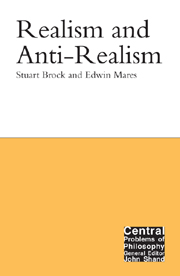9 - Science
from Part II
Summary
Introduction
Standard scientific realism concerns the truth of scientific theories and the existence of theoretical entities. A theoretical entity is an entity that is postulated by a scientific theory but cannot be perceived directly. A theoretical entity can be a type of thing, such protons or quarks, or events such as the Big Bang. Scientists also postulate laws of nature, such as the law that everything in the universe exerts a gravitational force on everything else in the universe. The problem about realism about science is the question of whether we should believe that these entities exist or that the laws of science are true.
In the literature, there are two sorts of realists about science. First, there are the standard realists, who believe that the purpose of science is to provide us with true postulates of laws and entities. These philosophers argue also that science has largely been successful in this regard and that our best scientific theories are true or at least are approximately true. Secondly, there are philosophers who reject the idea that there are laws of nature, or that the laws that scientists postulate are largely true, but hold that the entities that they postulate often do exist.
Anti-realists about science also come in several types. We do not have room to examine them all, so we shall look at the two most influential forms of anti-realism. We shall look at the fictionalism of Bas van Fraassen and the relativism of Thomas Kuhn.
- Type
- Chapter
- Information
- Realism and Anti-Realism , pp. 135 - 149Publisher: Acumen PublishingPrint publication year: 2007

